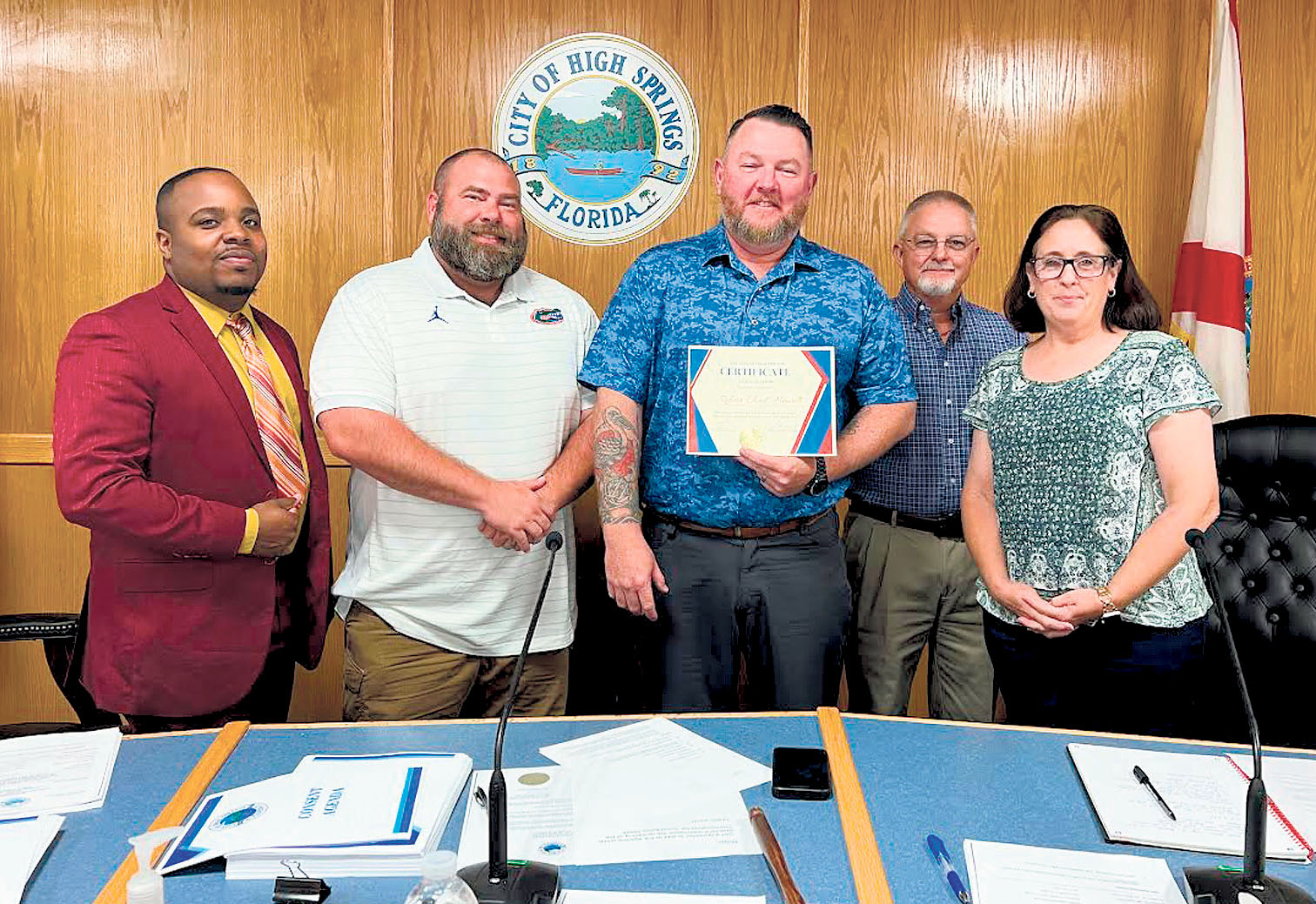ALACHUA ‒ The City of Alachua Commission on Sept. 22, 2025, voted unanimously to adopt a 6.2500 mill property tax rate and a total final budget of $67,078,940 for the 2025-2026 fiscal year. Commissioners also approved a new five-year Capital Improvement Program that organizes major projects through 2030.
City leaders noted that the final property tax rate is 8.86 percent higher than the rolled-back rate of 5.7413 mills. The rolled-back rate is the level that would generate the same property-tax revenue as the prior year without counting new construction. Staff said the adopted rate will support growth management, maintenance of existing infrastructure and the Commission’s strategic priorities while sustaining service levels for residents.
Finance and Administrative Services Director Rob Bonetti explained that the final budget is $6,038,847 higher than the tentative plan. The increase reflects routine reconciliations of fund balances, carry-forward of ongoing projects and reappropriation of funds for services that will continue into the new fiscal year. The General Fund totals $21,145,886 after adjustments to general government, public safety and transportation.
Beyond the General Fund, the Special Revenue Funds total $6,456,544. Capital Projects Funds total $1,494,326 and reflect the Community Development Block Grant for Economic Development that was recently appropriated. Enterprise Funds for the electric, water and wastewater utilities total $32,503,309. Internal Service Funds total $4,685,011, and the Debt Service Fund stands at $793,864.
A change sheet highlighted several visible projects and contractual items. These include educational panels for Mill Creek Wetland Park, contractual services for the Snake Pond Basin, and landscaping work in the Town Center area. The city is also carrying forward a purchase order connected to the City of Alachua versus Alachua County and Supervisor of Elections Kim Barton litigation.
During discussion, staff answered questions about Theater Park improvements and a separate legal engagement related to the bankruptcy of Resilience, formerly known as Nanotherapeutics. Bonetti said the company’s bankruptcy case is in Delaware and that the city hired specialized counsel to protect Alachua’s interests and to maximize recovery of money owed to the city. He added that the affected facility is expected to be sold in mid-October and that the city will secure a deposit from the new owner to safeguard future utility payments.
The five-year Capital Improvement Program totals $36.39 million across departments. Public Works plans include $850,000 this year for resurfacing city streets and $750,000 in the 2026-2027 fiscal year for neighborhood resurfacing assisted by Community Development Block Grant funding.
Neighborhood sidewalk construction is programmed at $40,000 across the five-year plan. Technology investments total $930,000 across the plan, including $155,000 this year for network upgrades. Staff said the technology schedule aligns with a full overhaul of the city website and the rollout of meeting livestreaming after the new site launches.
Parks and downtown work continue as well, including Theater Park upgrades and wayfinding signage through the city’s Community Redevelopment Agency.
Public comment urged the Commission to watch spending closely, questioned several legal and consulting outlays, and pressed for more emphasis on neighborhood sidewalks and street resurfacing relative to growth-related projects. Staff responded that cycles for Community Development Block Grants limit how quickly neighborhood projects can move, and that the city keeps a recurring infrastructure allocation that can be used for roads, sidewalks and grant matches.
After hearing from residents, the Commission unanimously adopted three items by roll-call vote: the final millage rate, the final budget and the five-year Capital Improvement Program.
|
By the numbers — City of Alachua 2025–2026
- Final property tax rate: 6.2500 mills
- Change from rolled-back rate: 8.86 percent above 5.7413 mills
- Total final budget: $67,078,940
- Increase from tentative plan: $6,038,847
- General Fund: $21,145,886
- Special Revenue Funds: $6,456,544
- Capital Projects Funds: $1,494,326
- Enterprise Funds (electric, water, wastewater): $32,503,309
- Internal Service Funds: $4,685,011
- Debt Service Fund: $793,864
Five-year Capital Improvement Program highlights
- Total program: $36.39 million through 2030
- Street resurfacing this year: $850,000
- Neighborhood resurfacing in 2026–2027: $750,000 aided by Community Development Block Grant funding
- Neighborhood sidewalk construction over five years: $40,000
- Technology upgrades across five years: $930,000, including $155,000 this year for network upgrades and a website overhaul that leads into meeting livestreaming
- Parks and downtown: Theater Park modifications and phased wayfinding signage through the Community Redevelopment Agency
|
# # #
Email editor@
alachuatoday.com






